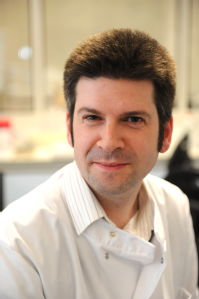Talk title TBC
 Historically the smell of a patient’s breath, body odour, urine and faeces has been a critical tool that has aided physicians to diagnose disease. Modern ‘smell’ technology offers a 21st century method to revolutionise modern healthcare practices offering rapid identification of diseases (especially diseases of considerable concern, such as diabetes, irritable bower diseases and even cancers), through the deployment of low cost, portable, smell technology into every hospital and GP surgery – detecting diseases through their ‘bio-odorant signatures’.
Historically the smell of a patient’s breath, body odour, urine and faeces has been a critical tool that has aided physicians to diagnose disease. Modern ‘smell’ technology offers a 21st century method to revolutionise modern healthcare practices offering rapid identification of diseases (especially diseases of considerable concern, such as diabetes, irritable bower diseases and even cancers), through the deployment of low cost, portable, smell technology into every hospital and GP surgery – detecting diseases through their ‘bio-odorant signatures’.
Here we present our efforts in developing these instruments, the broad spectrum of diseases that we have been able to diagnose with this approach and look forward to the future use of this approach.
James Corvington
Dr James Covington is a specialist in micro-systems, bio-chemical sensors and semiconductor devices. He has considerable experience in the field of micromachining, silicon fabrication, chemical sensor design and ASICs. For the last 15 years, he has been developing chemical and biological sensors for detecting a variety of environmental pollutants, biological agents and medical diseases. He has also been heavily involved in the design and development of micro-systems that mimic mammalian olfactory system.
He also heads the Biomedical Sensors Laboratory. This has brought together expertise from across the University to form a strong, long-term, collaborative activity between the Warwick Medical School, the School of Engineering and the University Hospital Coventry & Warwickshire (UHCW). The group is working collectively on developing novel point of care technology for the medical domain. Dr James Covington leads the work in this area within the School of Engineering. The School's expertise here is in smell, specifically artificial olfaction (so called electronic noses).
These instruments work on a similar principle to the human nose, identifying smells by their aroma instead of identifying all the chemical components. The team believe that such instruments could meet existing and emerging healthcare needs, and their long term vision is to develop a new generation of non-invasive, rapid, portable instruments that will detect a broad spectrum of ailments. Collaborative work is also being undertaken with the Rotherham General Hospital and the Royal Marsden Hospital in London.
